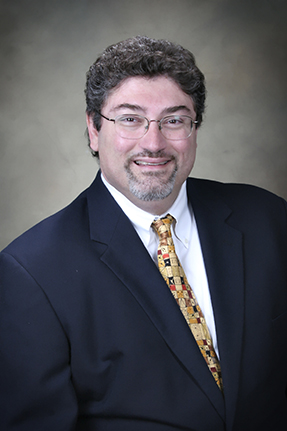
From the March 2015 Desktop News | The University of Alabama’s Board of Trustees has named Dr. Guy Caldwell, professor in the Department of Biological Sciences, a University Distinguished Research Professor.
This title recognizes UA faculty who have achieved international accomplishments in their field and are recognized for their scholarly contributions and noteworthy academic service.
Caldwell is internationally known for his research and expertise on malfunction in basic cellular mechanisms associated with diseases of the nervous system, particularly movement disorders such as Parkinson’s and dystonia. He uses the microscopic nematode C. elegans as a model system for discovering gene function as well as therapeutic target development for these disorders.
Caldwell is one of only two UA faculty members to presently hold the University’s Distinguished Research Professor title.
“Professor Caldwell’s appointment as University Distinguished Research Professor follows important national recognitions for his innovations in both research and teaching,” said Dr. Robert Olin, dean of the College of Arts and Sciences. “These include a prestigious NSF CAREER Award and appointment as CASE Professor of the Year for the state of Alabama. We congratulate Professor Caldwell on this further recognition of his work and continue to look forward to great things from the Caldwell lab at UA.”
“Considering the caliber of the many outstanding faculty at UA, I feel deeply honored for this recognition,” Caldwell said. “It is purely an outcome of the efforts of the past and present people in my research lab, notably my research partner and wife, Professor of Biological Sciences Kim Caldwell. I am grateful to my colleagues and the administration for the opportunities I have had to establish and advance my entire professorial career at this wonderful institution.”
Joining UA’s Department of Biological Sciences in 1999, Caldwell has received contracts and grants worth more than $5.6 million to support his research and that of his students. He has authored or co-authored three books, 11 book chapters and more than 70 refereed publications in scientific journals. He has given more than 200 invited lectures and presentations at national and international conferences.
His research has been published in some of the most prestigious scientific journals, including Science, Cell, Cell Metabolism, Proceedings of the National Academy of Science and various Nature journals.
Graduating from Washington and Lee University with a Bachelor of Science in biology in 1986, Caldwell earned his doctorate in cell and molecular biology at the University of Tennessee and was a post-doctoral fellow in neurogenetics at Columbia University, where he trained under a 2008 Nobel Laureate, Dr. Martin Chalfie, just prior to being appointed as an assistant professor at UA in 1999.
In 2003, The National Science Foundation selected Caldwell as a CAREER Award recipient, the most prestigious award the NSF bestows on faculty early in their careers.
For his teaching and mentoring efforts at UA, Caldwell was selected in 2005 as a U.S. Professor of the Year for the state of Alabama by the Carnegie Foundation and Council for Advancement and Support of Education.
Named a Basil O’Connor Scholar by the March of Dimes Birth Defects Foundation, Caldwell was also twice named recipient of National Research Service Awards. Together with Kim Caldwell, he was the inaugural recipient of the HudsonAlpha Prize for Outstanding Innovation in the Life Sciences, as well as the 2008 Blackmon-Moody Outstanding Faculty Award at UA.
Caldwell has been a recipient of research grants from the National Institutes of Health, the Michael J. Fox Foundation, the Dystonia Medical Research Foundation, the March of Dimes, Parkinson’s Disease Foundation, American Parkinson Disease Association, National Parkinson Foundation, The Parkinson’s Institute and the Bachmann-Strauss Dystonia & Parkinson Foundation.
Caldwell holds adjunct appointments in the departments of neurology and neurobiology at The University of Alabama School of Medicine in Birmingham, where he also serves as a scientist in the Center for Neurodegeneration and Experimental Therapeutics and the Gregory Fleming James Center for Cystic Fibrosis Research.